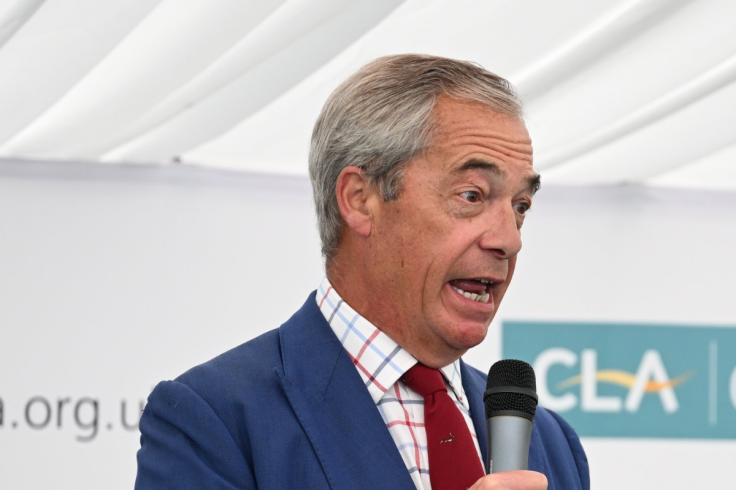Farage's Fallacy: Why Scrapping Migrant Protections Undermines Britain, Not Migrants
Behind the rhetoric of 'restoring England', Farage's migrant rollback could accelerate decline at home and isolation abroad

In the past month of heightened far-right activity across the UK, it comes as little surprise that rhetoric has been sharpened into policy. Yesterday, Nigel Farage, leader of Reform UK, announced a plan to rescind migrant protections, specifically targeting asylum applications and refugee resettlement programs, promoting it as a reform that would save the country more than £200 billion (approximately $270 billion). Economists, however, are deeply sceptical.
Britain has already lived through the consequences of stripping back migration. Brexit ended freedom of movement for EU workers, which resulted in a significant reduction of the workforce in key sectors such as hospitality, healthcare, and infrastructure. These industries, where EU nationals once made up nearly half the workforce, have experienced visible impacts: delayed medical assistance, unharvested crops, empty classrooms, and higher costs for basic services.
The Office for Budget Responsibility estimates that productivity has dropped by 4% since Brexit. A report by the Migration Advisory Committee highlights the reliance on migrant workers, particularly in the agricultural sector, where up to 40% of labor costs can be attributed to EU nationals. Farage's plans, economists suggest, threaten to accelerate the decline further.
An Ageing Population and Shrinking Workforce
At a deeper level, migration once helped offset the UK's ageing population. With fewer young, skilled workers entering the country, the growing share of residents over 65 is putting extraordinary strain on public services while widening inequality. By 2030, projections suggest there will be just 2.5 workers per retiree, a situation that could severely stress pensions and tax revenue, risking financial instability for the population. Farage's proposals would only deepen the demographic divide.
We must prioritise UK citizens. pic.twitter.com/XNNzAegmks
— Nigel Farage MP (@Nigel_Farage) September 22, 2025
The damage isn't confined to the domestic workforce. Britain's retreat into isolationism has made it a far less attractive place to invest and trade. Foreign investment has declined by nearly 30% since Brexit, while exports to the EU have fallen by 27% between 2021 and 2023.
These numbers are not just abstract financial data; they translate into real-world impacts, such as job losses in communities like Sunderland, where automotive manufacturing has long been a critical industry. By insisting it did not need Europe, Britain invited Europe to take the same view, resulting in economic stagnation, political estrangement, and an ever-diminished role on the global stage. If the UK goes through with Farage's plans of rescinding migrant agreements, this would further impact trade relations and jeopardize livelihoods in regions already struggling to adapt.
Social Cohesion at Breaking Point
But the danger is not just economic. Farage's rhetoric corrodes social cohesion, deepening the divides within English society. At a time when many families are already struggling to get by, immigrants will face even greater barriers. With morale lowered, communities vilified, and stability threatened, class divides will only grow. Such policies risk hardening inequalities and tearing families apart under the weight of bureaucratic hostility.
Ultimately, such legislation sets a precedent that extends beyond migration. A government willing to act in poor faith by disregarding pre-established commitments and international norms signals to its citizens and to the world that trust is expendable. At home, that erodes public confidence in democratic institutions. Abroad, it diminishes Britain's credibility as a reliable partner. This marks a sharp contrast to past instances, such as when the UK was a signatory to the 1951 Refugee Convention, showcasing its commitment to international humanitarian obligations. By honoring such commitments, Britain once cemented its reputation as a dependable leader on the global stage. Both outcomes only deepen the tense political atmosphere we already inhabit.
A large aspect of Reform UK's ethos is the hope of restoring England to what it once was. If the UK hopes to return to relative political peace and economic resilience, doubling down on populist scapegoating is not the answer. Farage's plan is not reform — it is regression, and it threatens to leave Britain more divided, more isolated, and more diminished than ever.
© Copyright IBTimes 2025. All rights reserved.





















